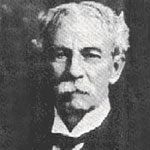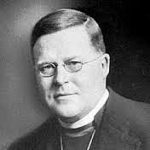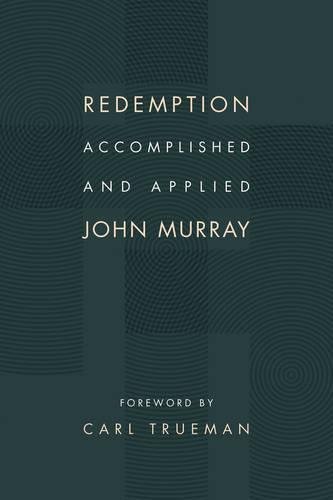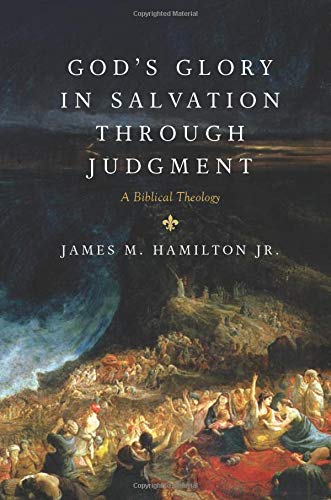Quotes about Salvation-Means
I was a sinner, less perfect than God. By conviction of the Holy Spirit I learned that my condition would incur the eternal condemnation of God if I did not submit to His grace. I acknowledged myself a sinner and threw myself on His mercy and grace, recognizing that He had brought salvation to earth through His Son Jesus Christ. After God the Father put God the Son to death on the cross, He could proclaim grace and pardon to all who would submit to Him. I came to the cross, believed His promise about His Son, and God declared me righteous even while I was ungodly and gave me authority to become His child. I ceased to be a child of wrath and became a child of God, justified from all things. Simultaneously, I was declared to be an heir of God, joint-heir with Jesus Christ. I received eternal life, and shall never perish. I was accepted in the Beloved; my body became the temple of the Holy Spirit; I was born of the Spirit into the family of God, baptized by the Holy Spirit into the body of Christ, and sealed by the Holy Spirit unto the day of redemption. I have an inheritance incorruptible and undefiled and that fades not away, reserved in Heaven for me. Although I know myself to be a sinner, I am not concerned about the penalty for sin, since the Lord Jesus Christ bore the penalty and declared me righteous. The love of Christ becomes the constraining factor in my life, and I seek to glorify Him as Lord. I know Him as my Creator and so have peace of mind. I know Him as Savior and so have peace of conscience. In the measure that I enter into the second rest, I know Him as Lord and find the peace that passes all understanding.
Despair of ever being saved, “except thou be born again,” or of seeing God “without holiness,” or of having part in Christ except thou “love Him above father, mother, or thy own life.” This kind of despair is one of the first steps to heaven.
And what is the prescribed response? Is it to walk down an aisle? Is it to fill out a card, or to lift up a hand? Is it to make an appointment with a preacher, or to decide to be baptized and join the church? While any of those things may be involved, none of them necessarily is. The response of the Good News – the message that Paul preached and other Christians preached throughout the New Testament – is to repent and believe. Once we’ve heard the truth about our own sin and God’s holiness, about His love in sending Christ, and about Christ’s death and resurrection for our justification, then, as instructed by the first words of Jesus recorded in Mark’s gospel, our response is to “Repent and believe the good news!” (1:15).
Nine Marks of a Healthy Church, Crossway, 2000, p. 77. Get this book!
The redemption of an eternal soul is one sale that I, in my own strength, cannot accomplish. I need to know that, not so that I won’t preach the Gospel, but so that I won’t allow my presentation of the Gospel to be molded by what I think will finally get a response and close a sale. Instead of using all my powers to convict and change the sinner, while God stands back as a gentleman quietly waiting for the spiritual corpse, His declared spiritual enemy, to invite Him into his heart, I’m going to preach the Gospel like a gentleman, trying to persuade but knowing that I can’t convict and convert and change the sinner. Then we’ll see clearly just who can really call the dead to life.
Nine Marks of a Healthy Church, Crossway, 2000, p. 127. Get this book!
If we think it is unfair for us to be represented by Adam, then we should also think it is unfair for us to be represented by Christ and to have His righteousness imputed to us by God.
Systematic Theology, Zondervan, 1994, p. 495. Used by Permission.
Get this book!
The man of sorrow sees it coming toward Him. He already senses something of the perfidy, the hypocrisy, the calumny, the mockery, the pain, and the shame which like an avalanche threatens to overwhelm Him. Yet, He does not retreat or even stand still. With unflinching determination, He walks right into it, for He knows that this is necessary in order that His people may be saved. “Having loved His own…He loved them to the uttermost” (John 13:1).
Penal substitution does not turn God into a cosmic child abuser. It does not reduce Christ to the passive victim of some divine injustice. It does not pit the Trinity against itself. No, in the God-forsakenness of Christ on the cross, the love of God and the justice of God are revealed on our behalf. United in purpose, Father and Son act in concert to save God’s people. The sinless Son of God bears our sin, and then God pours out the wrath that our sin deserves, and Jesus the Son endures it so that we, who deserve that wrath, might never encounter it. This is the gospel, the good news of the cross, and it calls us to forsake our sin, to turn away from it and embrace Christ, the forsaken one, so that we may not be forsaken.
Forsaken by Mark Dever and Michael Lawrence taken from It Is Well, by Mark Dever and Michael Lawrence, copyright 2010, Crossway Books, a division of Good News Publishers, Wheaton Illinois 60187, www.crosswaybooks.org, page 90.
Someone has pictured the divine and human sides of salvation in this way: When you look toward heaven you begin to see a sign that reads, “Whosoever will may come,” and after you enter heaven you look back and see the same sign and read on the other side, “Chosen in Him before the foundation of the world.”
Faith is man’s response to God’s elective purpose. God’s choice of men is election; men’s choice of God is faith. In election God gives His promises, and by faith men receive them.
The first declaration of the gospel is negative – that every man is sinful, separated from God, and condemned to hell. A person will not seek to be saved until he realizes he is lost. Therefore the first step in proclaiming the gospel is to tell men of their lostness, and the first step in receiving the gospel is to confess that lostness. A person will not seek healing until he is convinced he is sick; he will not seek life until he acknowledges he is dead. Conversion, then, occurs in one who is willing to accept the death sentence and also the acquittal of God. The man who does not recognize his condemnation to death has no hope for new life.
The truth is that unless people realize they have a sin problem, they will not come to Christ for a solution. People don’t come for healing unless they know they have a disease; they don’t come for life unless they are conscious that they are under the penalty of death; they don’t come for salvation unless they are weary of the bondage of sin.
[Affliction is sometimes] sent for the conversion of the soul. Sometimes in health the Word does not touch the heart. The world is all. Its gaieties, its pleasures, its admiration, captivate your mind. God sometimes draws you aside into a sickbed, and shows you the sin of your heart, the vanity of worldly pleasures and drives the soul to seek a sure resting-place for eternity in Christ. O happy sickness that draws the soul to Jesus (Job 33, Psm. 107).
To tell men the worst about themselves is not to hinder conversion. On the contrary, the real impediment to conversion is the absence of conviction of sin. The preacher’s first duty is to address that fact by awakening the conscience to the meaning of sin, and to sin understood not simply as wrong action requiring forgiveness, but as an evil principle governing man’s very heart. A sinner’s knowledge of his own inability is therefore part of the knowledge which leads him to recognize that what he needs is a new nature.
Unless we are thoroughly convinced that without Christ we are under the eternal curse of God, as the worst of His enemies, we shall never flee to Him for refuge.
Meditation on the Glory of Christ, 1684, ch. 15. Get this book!
This is somewhat of the word which He now speaks unto you: Why will you die? Why will you perish? Why will you not have compassion on your own souls? Can your hearts endure, or can your hands be strong, in the day of wrath that is approaching?… Look unto Me, and be saved; come unto Me, and I will ease you of all sins, sorrows, fears, burdens, and give rest to your souls. Come, I entreat you; lay aside all procrastinations, all delays; put me off no more; eternity lies at the door…do not so hate Me as that you will rather perish than accept of deliverance by Me. These and the like things does the Lord Christ continually declare, proclaim, plead and urge upon the souls of sinners… He does it in the preaching of the Word, as if He were present with you, stood amongst you, and spoke personally to every one of you… He has appointed the ministers of the gospel to appear before you, and to deal with you in His stead, avowing as His own the invitations which are given you in His name.
God is none other than the Savior of our wretchedness. So we can only know God well by knowing our iniquities… Those who have known God without knowing their wretchedness have not glorified Him, but have glorified themselves.
Here is how it happens. When the Spirit of God works savingly through the Word of God in a person’s life, God regenerates the heart (i.e., He gives him new birth), making him a new creation. As a new creation this newborn Christian recognizes his sin and turns to God for forgiveness. God enables Him to believe the Word. This is always the case (John 6:37). This belief is what God uses to bind or unite someone to Christ. It is through this union that we then experience the benefits of Christ’s work. We are considered righteous because we are now able to inherit Christ’s righteousness. It is imputed to us or considered effective in our life. We are not just innocent, but positively righteous. Moreover, since Christ is life (John 14:6), once we are united to Christ, we inherit abundant, eternal life from Him (John 6:39-40).
New Birth by Ben Peays taken from Don’t Call it a Comeback, edited by Kevin DeYoung, copyright 2011, Crossway Books, a division of Good News Publishers, Wheaton Illinois 60187, www.crosswaybooks.org, pages 90-91.
No sinner was ever saved by giving his heart to God. We are not saved by our giving, we are saved by God’s giving.
Shepherd’s Conference 2022, Triune Salvation: Why the Unity of the Trinity Demands a Definite Atonement.
There is a remedy revealed for man’s need, as wide and broad and deep as man’s disease. We need not be afraid to look at sin, and study its nature, origin, power, extent, and vileness, if we only look at the same time at the almighty medicine provided for us in the salvation that is in Jesus Christ. Though sin has abounded, grace has much more abounded.
[Our Lord] is ready to receive all who [come] to Him, however unworthy they may feel themselves. None who repent and believe are too bad to be enrolled in the ranks of Christ’s army. All who come to Him by faith are admitted, clothed, armed, trained, and finally led on to complete victory. Fear not to begin this very day. There is yet room for you.
He must cast away all pride and high thoughts, and conceit of his own goodness. He must be content to go to heaven as a poor sinner saved only by free grace, and owing all to the merit and righteousness of another… He must be willing to give up all trust in his own morality, respectability, praying, Bible-reading, church-going, and sacrament-receiving, and to trust in nothing but Jesus Christ.
All are not saved by Christ’s death, but all which are saved, are saved by Christ’s death; His death is sufficient to save all, as the sun is sufficient to lighten all; but if any man wink, the sun will not give him light.
A Puritan Golden Treasury, compiled by I.D.E. Thomas, by permission of Banner of Truth, Carlisle, PA. 2000, p. 29.
A true confrontation with the living God is a direct confrontation with His holiness. And when we really understand His holiness we are never more convinced of our sinfulness. We instinctively know that sin cannot remain in His presence without being judged. And that is the most fearful thing we can ever imagine and that is what draws us to Christ for refuge.
Our opponents say, “Salvation belongs to the free will of man; if not to man’s merit, yet at least to man’s will;” but we hold and teach that salvation from first to last, in every iota of it, belongs to the Most High God. It is God that chooses His people. He calls them by His grace; He quickens them by His Spirit, and keeps them by His power.
The first link between my soul and Christ is not my goodness but my badness, not my merit but my misery, not my riches but my need.
I learn from the Scriptures that repentance is just as necessary to salvation as faith is, and the faith that has not repentance going with it will have to be repented of.
When I was coming to Christ, I thought I was doing it all myself, and though I sought the Lord earnestly, I had no idea the Lord was seeking me. I do not think the young convert is at first aware of this… One week-night, … the thought struck me, "How did you come to be a Christian?" I sought the Lord. "But how did you come to seek the Lord?" The truth flashed across my mind in a moment – I should not have sought Him unless there had been some previous influence in my mind to make me seek Him. I prayed, thought I, but then I asked myself, How came I to pray? I was induced to pray by reading the Scriptures. How came I to read the Scriptures? I did read them, but what led me to do so? Then, in a moment, I saw that God was at the bottom of it all, and that He was the Author of my faith, and so the whole doctrine of grace opened up to me, and from that doctrine I have not departed to this day, and I desire to make this my constant confession, "I ascribe my change wholly to God"
Here, then, is the crucial question which we have been leading up to. Have we ever opened our door to Christ? Have we ever invited Him in? This was exactly the question which I needed to have put to me. For, intellectually speaking, I had believed in Jesus all my life, on the other side of the door. I had regularly struggled to say my prayers through the key-hole. I had even pushed pennies under the door in a vain attempt to pacify Him. I had been baptized, yes and confirmed as well. I went to church, read my Bible, had high ideals, and tried to be good and do good. But all the time, often without realizing it, I was holding Christ at arm’s length, and keeping Him outside. I knew that to open the door might have momentous consequences. I am profoundly grateful to Him for enabling me to open the door. Looking back now over more than fifty years, I realize that that simple step has changed the entire direction, course and quality of my life.
God requires satisfaction because He is holiness, but He makes satisfaction because He is love.
The only thing of our very own which we contribute to our salvation is the sin which makes it necessary.
Salvation is from our side a choice; from the divine side it is a seizing upon, an apprehending, a conquest by the Most High God. Our “accepting” and “willing” are reactions rather than actions. The right of determination must always remain with God.
We need God to save us from God.
We need God to save us from God!
Salvation is not something we achieve but something we receive.
These doctrines build upon one another. The doctrine of total depravity establishes what the Bible teaches about the spiritual condition of unregenerate man and leaves one with the question “Who can be saved?” The doctrine of unconditional election then answers the question by declaring God’s sovereign choice in choosing to save people despite their depravity and based solely on God’s sovereign choice to redeem for Himself people from every tribe, tongue and nation. Next, the doctrine of limited atonement explains how God can be perfectly just and yet redeem those sinful people and reconcile them to Himself. The only solution to the depravity of man was for God to provide a Redeemer who would act as their substitute and suffer the wrath of God for their sins. He did this in the death of Christ, who, having been crucified, completely and totally “canceled out the certificate of debt…having nailed it to the cross” (Colossians 2:13-14). That leads to another question: how can a spiritually dead sinner who is hostile to God have faith in the atoning work of Christ on the cross? That question is answered by the doctrine of grace that is known as irresistible grace, the “I” in the acronym TULIP.

























